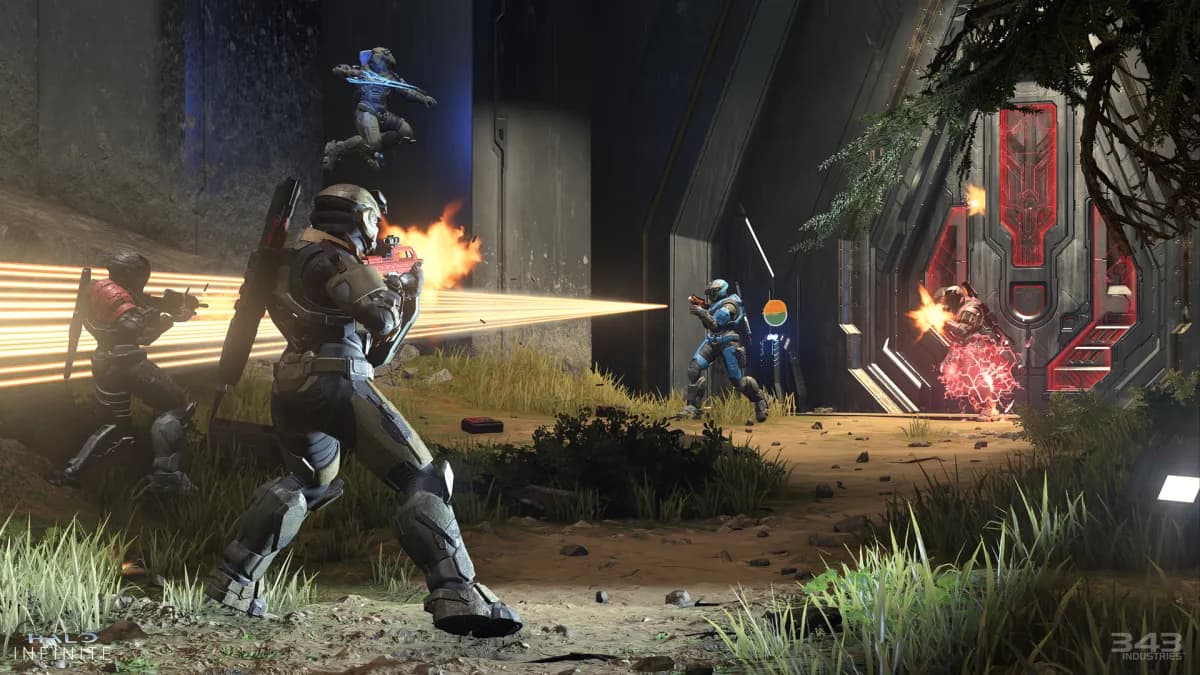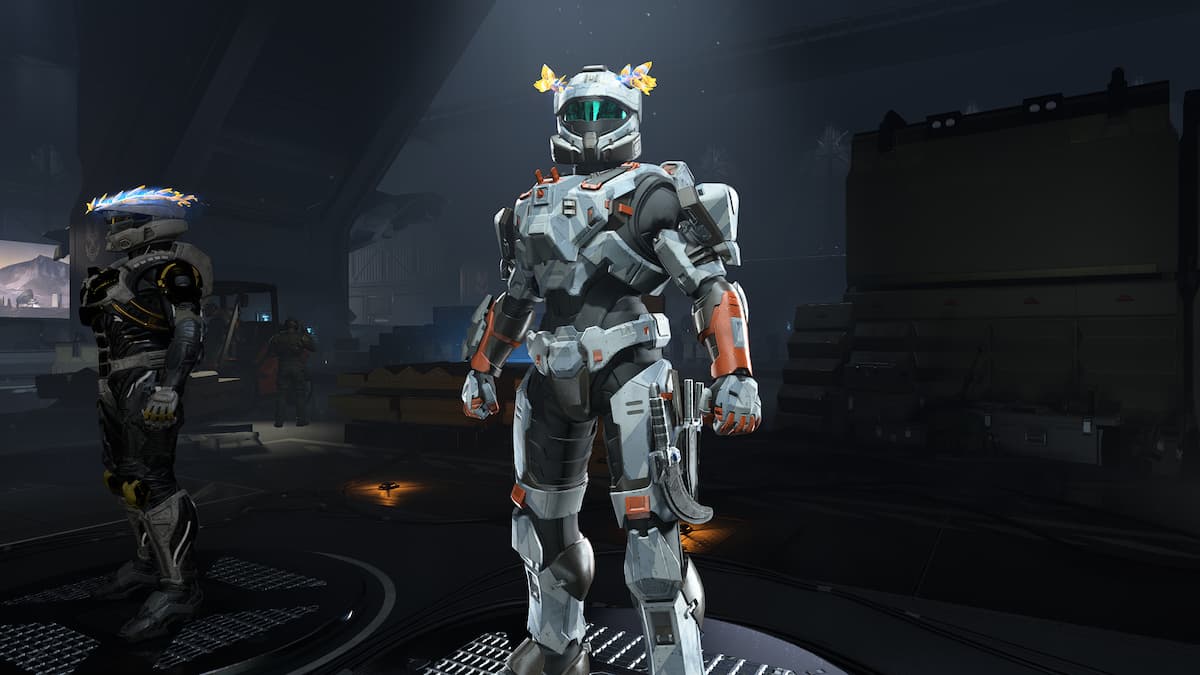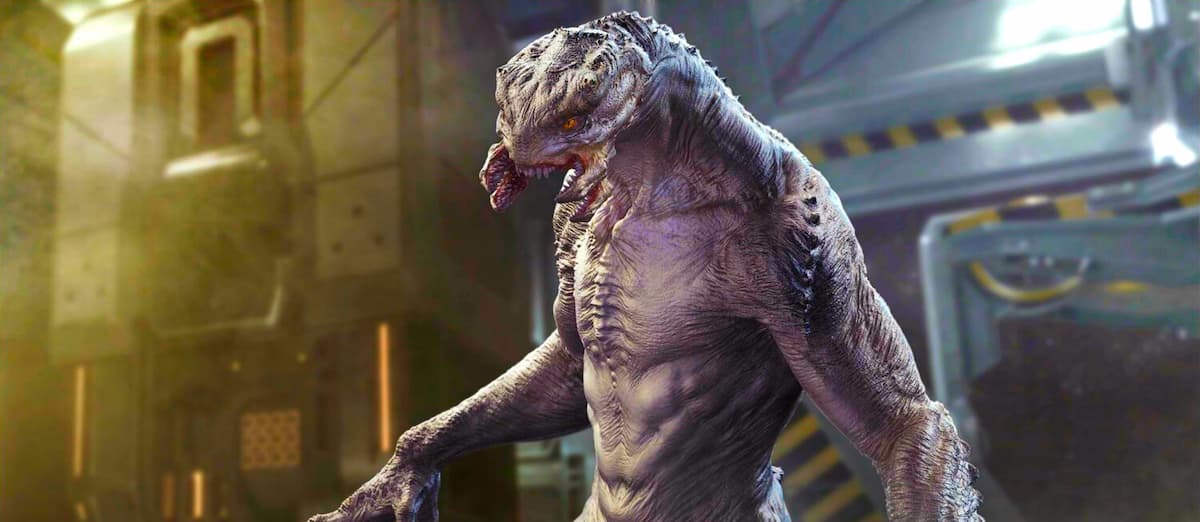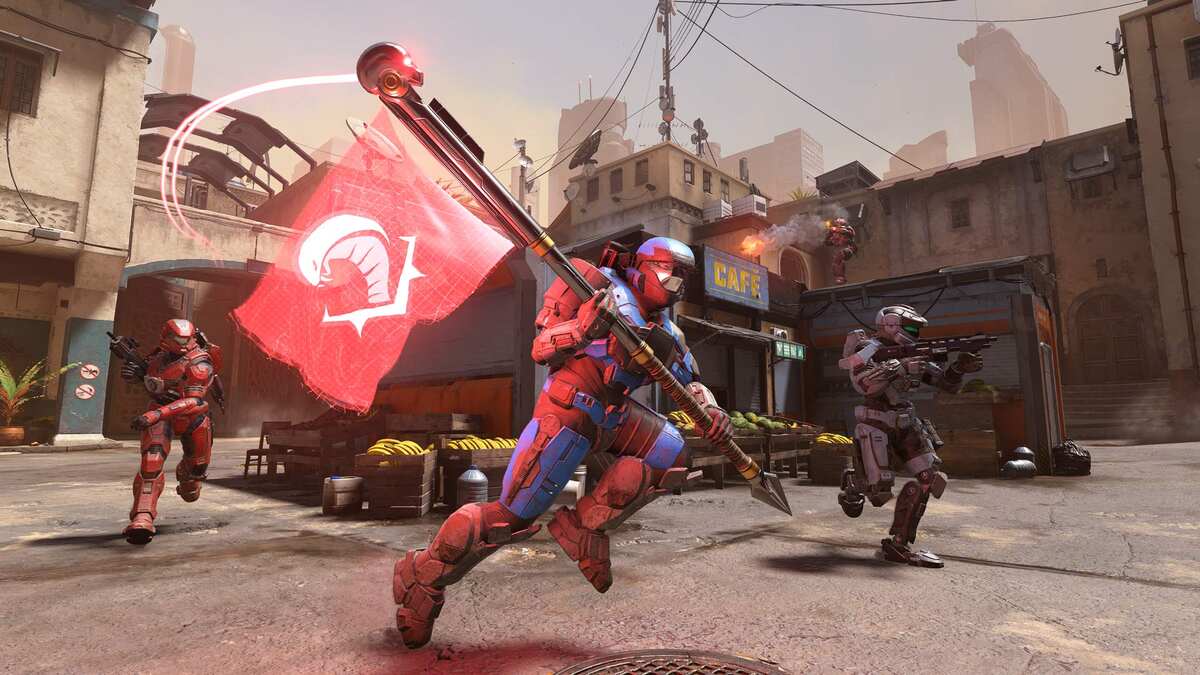The fate of Halo Infinite and the franchise as a whole got a lot more unclear in recent weeks.
Developer 343 Industries was hit hardest of all after Microsoft announced it would be letting go of 10,000 employees. For 343, which had already lost leadership figures such as studio head Bonnie Ross and multiplayer creative director Tom French in 2022, the additional employees terminated in these layoffs contributed to questions and rumors surrounding the studio’s continued purpose as shepards of the franchise.
In a report published today by Bloomberg, it’s made clear those questions weren’t entirely unjustified. 343 Industries—and Halo as a whole—is “all but starting from scratch,” which includes moving Halo’s development to Unreal Engine from the franchise’s own legacy engine Slipspace and a re-focus on live service multiplayer offerings while future story content is put on hold.
Despite the initial success of Halo Infinite’s launch, delayed seasons, buggy updates and a lack of content have all but killed the sudden burst of popularity injected into the franchise by it. A number of factors contributed to the tumultuous development cycle, but one of the key ones was the Slipspace Engine that Halo operates on. Developers on Halo Infinite have reported that it’s “buggy and difficult to use.” Bloomberg’s report notes that multiple classic multiplayer modes that have been rumored to be coming to Halo Infinite for some time now—such as Extraction and Assault—have yet to be released because of issues involving the engine.
It’s unsurprising, then, to see that 343 Industries is planning to pivot to Unreal Engine for future releases in the hopes that the popular and accessible tool will clean up a lot of the studio’s notoriously challenging development cycles.
Over a year ago, industry sources revealed to Windows Central that Certain Affinity and 343 Industries were working together on a new mode for Halo Infinite. This took form as “Project Tatanka” later in the year, with additional rumors that it was being built inside of Unreal Engine. The new Bloomberg report corroborates this information, confirming the existence of the project and suggesting that it will be the first new Halo game to represent the transition to Unreal Engine over Slipspace.
While Tatanka may sit on the visible horizon, future mainline Halo games are undoubtedly a long way out as 343 Industries rebuilds itself under the new leadership of Pierre Hintze. With so many key figures now gone from the company and a move to Unreal Engine reportedly decided after Hintze replaced Bonnie Ross, settling back into a consistent development cadence will be the primary goal for the next few months.
As for Halo Infinite, there’s nothing to suggest that development on the game’s live service seasons will stop anytime soon. Season three is still slated for release in just over a month, and in an email sent to employees after the layoffs, Hintze stated that 343’s current plan was to focus on “a robust live offering” for both Infinite and its Forge mode. Maintaining player engagement in Halo is dependent on the success of this with Project Tatanka still a long way out.
With ex-343 Industries figures such as Patrick Wren publicly stating that many of the studio’s previous shortcomings with the franchise came from “incompetent leadership” that caused “massive stress on those working hard to make Halo the best it can be,” both Microsoft and Hintze will be hoping to avoid such missteps with Halo now walking a tightrope to try and maintain a fanbase.
“The people I worked every day with were passionate about Halo and wanted to make something great for the fans. They helped push for a better Halo and got laid off for it,” Wren said in that same thread. “Devs still there are working hard on that dream. Look at Forge. Be kind to them during this awful time.”












Published: Jan 31, 2023 03:30 pm